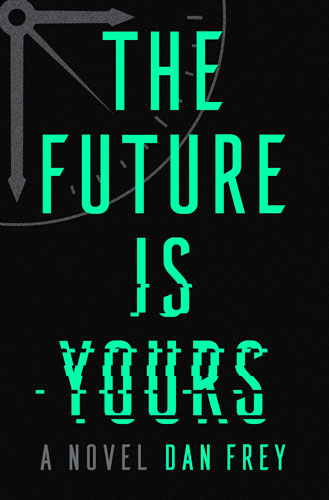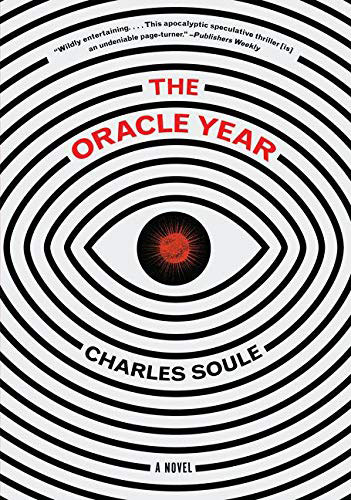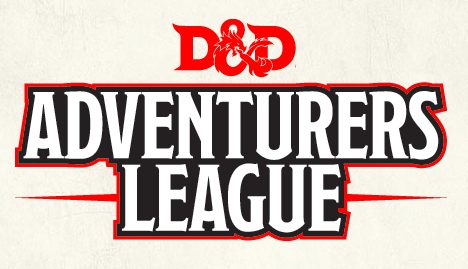Today’s stack is all about the future: messages sent from the future, predictions about the future, and imagined possibilities for the future.
The Future Is Yours by Dan Frey
We’ll start with this book, which sort of qualifies as time travel, though the main thing traveling through time in this case is information. After Adhi Chaudry’s thesis project was rejected, he got a job at Google, though he had a hard time fitting in. Meanwhile, Ben Boyce, Adhi’s best friend from college, is looking for an opportunity after a couple of failed startups—and he’s amazed by the possibilities he sees in Adhi’s abandoned dissertation.
Together, the two start The Future, a company with a whopper of a product: a computer that can connect to itself up to a year in the future, allowing access to email and news stories that haven’t been written yet. As far as they can tell, the things they find through their prototype are unalterable predictions, even when they try some experiments to interfere—which raises a lot of questions about free will and causality, but who has time for that when there’s money to be made?
The story is told through a series of documents, framed by the transcript of a congressional hearing deciding whether this technology should be legal at all. As the hearing plays out, we’re treated to emails, text conversations, a Wired article, TED talks, and more. Ben and Adhi’s friendship is pushed to its breaking point, and the device begins to have some even more inexplicable effects.
The story takes place primarily throughout 2021, with the hearing taking place in December, and it appears that the story was mostly written pre-COVID. So it feels a little strange to read a book in which news of current/upcoming events plays such an important role in the story, yet there’s nothing about masks, vaccines, presidential elections, and so on. COVID does get mentioned once, in a list of search terms when they first fire up the prototype—probably something added late in the editing process, is my guess—but that makes it all the more jarring because it implies that COVID exists in the world of the book, yet has no effect on anyone otherwise. That incongruity aside, though, it’s a pretty captivating portrait of a tech startup’s meteoric rise, along with all the problems that can come with it.
I did have some issues here and there—despite the fact that Dan Frey thanks a few people for helping with representation, I found his portrayal of Adhi’s mother in particular to be an uninspired stereotype: she only appears a few times, sending emails to Adhi that include lots of typos and poor grammar, and are all about feeding him and whether he’s got a girlfriend yet. Frey is white, but his two main characters are people of color.
Ben is the public face of the company, the guy who gets all the attention (and gives the TED talk, of course), the one who’s on Twitter talking about The Future. He’s the one who’s selling the vision, but also wants to control the direction of the company. Ben in particular tended to annoy me—he’s the quintessential tech bro, and I think he’s intended to be a bit abrasive. Adhi is the genius behind the scenes, the one who actually understands how the prototype works. He doesn’t like the spotlight, but he’s also concerned about the implications of the tech he created. The clashing personalities reminded me a little of another book about a tech giant: The Circle (which I read a few years ago). The odd-couple pairing of the loud huckster and the shy scientist does feel a little cliched, but it works to drive a lot of the conflict in the story.
The prototype’s ability to access the future reminds me a little of another book about computers connecting to the future, The Future of Us by Jay Asher and Carolyn Mackler, which I reviewed just about a decade ago. That book had two teenagers in 1996 who found themselves looking at their own future Facebook profiles. One tries desperately to escape what she sees as a depressing future, and the other struggles to hold onto what appears to be a fantastic life. In that book, however, the actions they take in 1996 affect what they see on Facebook, so the future is still mutable, so it doesn’t challenge the notion of free will. However, just as in The Future Is Yours, seeing a prediction about the future does affect the choices the characters make in the present.
All in all, The Future Is Yours really hooked me quickly, and I found it a thought-provoking mix of sci-fi, tech culture, and politics.
The Oracle Year by Charles Soule
I’d received this one a while back and had put it with my time travel books, though it’s even less time travel than The Future Is Yours. Similarly, though, it does involve information from the future: a mysterious website with 20 predictions—from a number of babies born at a particular hospital on a certain date to a bridge collapsing. Who is this Oracle? Where did these predictions come from? What is the point behind them? As soon as people start to notice that the predictions are coming true, the Site becomes a worldwide obsession.
The readers, however, are let in on a secret right from the start: the Oracle is a guy named Will Dando, a bass player in New York City, and the predictions are almost as much a mystery to him as anyone else. He woke up from a dream, having heard 108 statements, and wrote them down. His friend Hamza, a former investment banker, helped Will set up the site and has a scheme to make money by selling some of the unreleased predictions—a scheme that quickly makes them rich beyond their wildest dreams.
Of course, infallible predictions about the future have other consequences. As in The Future Is Yours, there are some questions about free will and choices. Will is haunted by an incident that he tried to prevent, because his efforts to stop it may have been exactly what caused it to happen. He also feels enormous responsibility for the predictions: why was he chosen? What is he meant to do with them? As the story progresses, Will begins to suspect that the predictions are all driving the world in a particular direction.
The Oracle Year does include a familiar trope whenever political intrigue is involved: the off-the-books agency (in this case, a person only known by the name “Coach”) who has seemingly unlimited resources and incredible reach, who can find anyone, get any job done, and is yet a complete secret to anyone who hasn’t been directly affected by their actions. The Oracle attracts the attention of a lot of important figures, of course, and eventually Coach is hired to track him down on behalf of the president.
The book was published in 2018, so no surprises that there are no hints of a global pandemic even though it appears to take place somewhere around the time of publication. But the book sidesteps our real-world politics a bit; the president is David Green and the book avoids any direct commentary about Trump at all, so it’s just an alternate world. Some of the international conflicts involve the made-up country of Qandustan, though we also get real-world locations like Niger and Uruguay and Afghanistan. And you can tell that Soule probably figured it was a good bet to assume the US would be in Afghanistan and not leaving any time soon based on the occasional references made.
On the one hand, I think a site that listed a bunch of random predictions that all turned out to be true would capture the attention of the world. On the other, based on the last few years, I found myself wondering whether people would believe it, or if you’d have more “nah, that never happened” reactions and accusations of fake news. In the book, people have theories—that the events were set up and somebody made them occur (even in cases where it was incredibly improbable). There are people who doubt that the Oracle can actually see the future, but nobody is arguing that any of the predictions failed to occur.
The book also relies a little on a similar idea to Watchmen (the original comic book): the idea that a common enemy could bring people together, that the world on the brink of disaster would come to its senses. Maybe in 2018 I might have been more inclined to believe that, but these days it seems more like wishful thinking. Still, it’s another fascinating read, and it was fun to pair it with The Future Is Yours to see how these two worlds reacted to predictions sent from the future.
I enjoyed reading both of these books, but I couldn’t help but feel cynical about the way people responded to the predictions. It often feels like people have such a short memory when it comes to the internet. Somebody says something, and then it comes true, and … nobody cares? All of the dire predictions about what COVID, and we’re doing worse now in the US—several months after a vaccine was readily available—than we were last year? It makes the idea of the whole world paying attention to some words on a single site just a bit less plausible than it may have seemed in 2018.
Hello, Future Me by Kim Ventrella
If you’re thinking “one of these things is not like the other,” then you’re right! This one’s a middle grade novel rather than an adult novel, but it also involves messages from the future received through a computer. That’s the premise on the back cover, at least, so I decided to give it a read after finishing the two books above.
Here’s the scoop: June is about to turn twelve, her mom’s finally coming home from a five-week artist’s retreat, and she can’t wait … but then things take a weird turn. Her mom doesn’t arrive at the airport and calls her dad instead, who starts acting really weird. It turns out they’re getting a divorce—so June kicks into high gear, making plans to get her parents back together again, with the help of her best friend, Calvin.
The messages from the future come in when she opens one of her gifts: a used laptop her dad bought from a mysterious shop in town. She starts getting chat messages from somebody claiming to be an older version of herself, advising her to drop her plans because this is something she can’t simply fix. She also gets messages from her younger self, who can’t believe that her annoyingly lovey-dovey parents would ever break up.
Although this is written for middle grade readers and the story is largely about June coming to terms with her parents’ divorce, it does share some things in common with the previous books, like the way that people react to information from the future, and whether that affects how they behave now. This book, however, isn’t relying on any sort of time-travel technology built into the laptop—it’s magic, through and through, and there’s more magic besides the laptop that shows up in the story, too.
It was a touching story, and even though there’s certainly sadness surrounding the divorce, there’s also hope and tenderness in the way that June finally understands that it’s not her fault, that it’s not something that is her responsibility to change.
AI 2041: Ten Visions for Our Future by Kai-Fu Lee and Chen Qiufan
Finally, I’ll wrap up today’s column with this book, though I’ve just started it and have not finished it yet. This one is a mix of fiction and non-fiction. Kai-Fu Lee is a computer scientist and expert on artificial intelligence; Chen Qiufan is a science fiction writer. Together, they have crafted ten fictional stories based on Lee’s predictions of where the technology may go in twenty years (hence the title), based on the current trends in AI. Lee hopes that these stories will help give readers a better understanding of AI and where it could actually intersect with our lives, a different vision than killer robots or computer overlords.
Each of Chen’s stories is accompanied by Lee’s insights about that particular use of AI. He explains a bit about the concepts incorporated in the story, showing the benefits of artificial intelligence as well as its potential pitfalls. It’s a cool way to learn a bit more about AI, and I’m excited to dig into it some more.
Disclosure: I received review copies of these titles. Affiliate links to bookshop.org help support my writing and independent bookstores!








